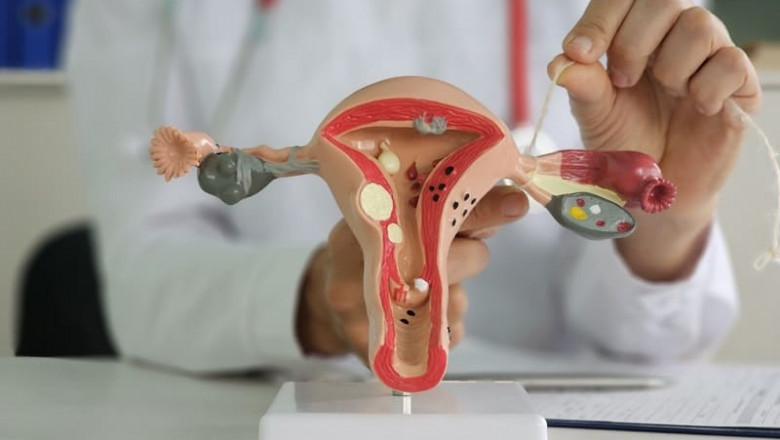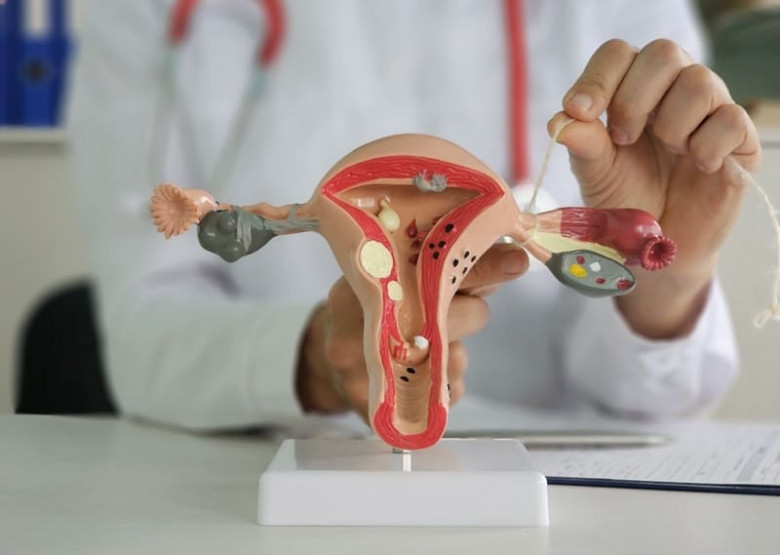9
views
views
Addresses non-pregnancy-related gynecologic conditions like fibroids, ovarian cysts, and infections of the reproductive tract.
General Gynecology(أمراض النساء العامة)


Gynecological services play a critical role in maintaining a woman's overall health and well-being. Preventive care is an essential part of a General Gynecology(أمراض النساء العامة) practice, focusing on identifying potential health issues before they become serious. Preventive gynecological services aim to detect diseases early, promote healthy practices, and provide education on maintaining optimal reproductive health. These services are vital for preventing conditions such as cervical cancer, ovarian cysts, and other reproductive system disorders.
Preventive gynecological services are designed to identify early signs of health issues, making it easier to treat them effectively before they develop into more serious concerns. Regular check-ups allow for the monitoring of reproductive health and overall wellness, ensuring that women can manage their health proactively. Preventive care also offers opportunities to receive education on topics like sexual health, contraceptive options, and menopause management, empowering women to make informed decisions.

A routine gynecological exam is the cornerstone of preventive care for women. During this exam, the gynecologist assesses overall reproductive health, performs screenings, and discusses any health concerns. The exam typically includes:
Pelvic Examination: This part of the exam checks for abnormalities in the reproductive organs, such as cysts, fibroids, or signs of infection.
Breast Examination: A breast exam may be performed to check for lumps or other signs of breast cancer.
Pap Smear (Cervical Screening): A Pap smear is performed to detect abnormal cervical cells that could indicate the presence of cervical cancer. This screening is recommended for women aged 21 and older, typically every three years, or more often depending on medical history.
Routine gynecological exams help detect early signs of conditions like cervical cancer, reproductive infections, and other gynecological health concerns, allowing for timely intervention.
Human papillomavirus (HPV) is a common sexually transmitted infection that can lead to cervical cancer, genital warts, and other health issues. Vaccination against HPV is a critical preventive measure for women, particularly when administered in their teens or early 20s. The HPV vaccine protects against the types of HPV that are most likely to cause cervical cancer and other HPV-related conditions.
Benefits of the HPV Vaccine:
Protects against HPV strains that cause most cervical cancers
Reduces the risk of genital warts
Can be administered in both males and females to reduce overall transmission
HPV vaccination is a powerful tool in preventing cervical cancer and promoting long-term reproductive health.
Regular breast cancer screening is another essential preventive service offered by gynecologists. While self-breast exams can help women detect changes in their breast tissue, professional screenings are important for detecting signs of breast cancer early. A gynecologist may recommend mammograms or other imaging tests depending on a woman’s age, family history, and risk factors.
Mammograms: Typically recommended annually for women over 40, mammograms are vital for detecting breast cancer at its earliest, most treatable stages.
Clinical Breast Exams (CBE): Your gynecologist may also perform a clinical breast exam to assess for lumps or changes in the breast tissue.
Early detection of breast cancer through regular screenings significantly increases the chances of successful treatment and recovery.
Preventive gynecological services also include family planning and contraception counseling. Women have many options to manage their reproductive health, including birth control methods such as:
Oral Contraceptives: Birth control pills help regulate periods and prevent pregnancy.
Intrauterine Devices (IUDs): IUDs are a long-term, effective method of contraception that also helps reduce the risk of certain reproductive cancers.
Contraceptive Implants: These are small devices placed under the skin that provide long-term birth control.
Choosing the right method of contraception is an essential aspect of preventive care, helping women avoid unintended pregnancies and maintain reproductive health.
As women approach menopause, they undergo significant hormonal changes that can impact their health and quality of life. Preventive General Gynecology Treatment(علاج أمراض النساء العامة) services help manage symptoms associated with menopause, such as hot flashes, vaginal dryness, and mood swings. Your gynecologist may offer options such as:
Hormone Replacement Therapy (HRT): This treatment helps regulate hormone levels and alleviate symptoms associated with menopause.
Lifestyle Adjustments: Guidance on diet, exercise, and stress management to support overall health during menopause.
By addressing menopause-related health changes proactively, women can maintain their well-being during this phase of life.
At what age should I start seeing a gynecologist?
Women should begin seeing a gynecologist between the ages of 13 and 15, especially if they have concerns about their menstrual cycle, sexual health, or other reproductive issues.
How often should I have a Pap smear?
Pap smears are typically recommended every three years for women aged 21-29. For women aged 30-65, it may be combined with an HPV test every five years.
Is contraception only for preventing pregnancy?
No, many forms of contraception also have health benefits such as regulating menstrual cycles, reducing menstrual cramps, and improving skin conditions like acne.
Can I still get the HPV vaccine if I’m older than 26?
The HPV vaccine is recommended for women up to age 26, but in some cases, it may be available for those aged 27-45 who are at risk for new HPV infections.
How can I prepare for my first gynecological visit?
Be prepared to discuss your menstrual history, sexual activity, and any health concerns you may have. It’s helpful to bring a list of questions or concerns to ensure you get the most out of your visit.
Preventive gynecological services are essential for maintaining reproductive health, detecting early signs of health conditions, and providing a foundation for overall well-being. Regular exams, screenings, and vaccinations help women stay proactive about their health, preventing long-term health issues and promoting a better quality of life. Whether it’s through early cancer detection, managing contraceptive needs, or supporting menopause transition, gynecologists play a crucial role in the preventive healthcare of women. Women should prioritize preventive gynecological care to ensure they stay healthy at every stage of life.


Comments
0 comment